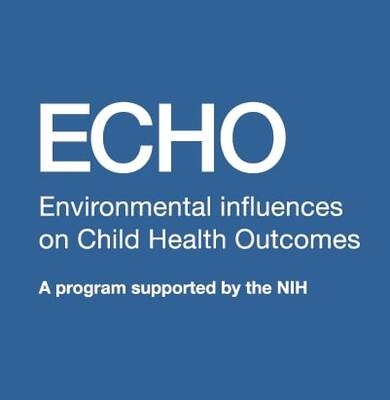There has been an overall decrease in the body mass index of children and adolescents in America following the implementation of the Healthy, Hunger-Free Kids Act, according to a new study funded by the Environmental influences on Child Health Outcomes Program at the National Institutes of Health.
DURHAM, N.C., Feb. 13, 2023 /PRNewswire/ -- There has been an overall decrease in the body mass index (BMI) of children and adolescents in America following the implementation of the Healthy, Hunger-Free Kids Act (HHFKA), according to a new study funded by the Environmental influences on Child Health Outcomes Program (ECHO) at the National Institutes of Health.
"The National School Lunch Program and School Breakfast Program (NSLP) provides free or low-cost meals to over 30 million children annually, providing an estimated 50% of students' caloric intake each school day," said Aruna Chandran, MD, MPH, an ECHO Program investigator at the Johns Hopkins Bloomberg School of Public Health.
The HHFKA was fully implemented in 2016 and is the first legislation passed in nearly 3 decades to improve the nutritional quality of school meals. To evaluate the effect of the HHFKA on children's BMI, ECHO researchers analyzed data from over 14,000 children collected between January 2005 and March 2020 from 50 cohorts across the U.S.
"School meals and snacks represent a key opportunity for intervention to combat the childhood obesity epidemic," said Emily Knapp, PhD, an ECHO Program investigator at the Johns Hopkins Bloomberg School of Public Health. "This is particularly important for children in lower-income families who are more likely to participate in the NSLP and are at higher risk of obesity."
Dr. Chandran and Dr. Knapp led this collaborative research published in JAMA Pediatrics.
Chandran, A. et al. Changes in Body Mass Index Among School-Aged Children Following Implementation of the Healthy, Hunger-Free Kids Act. JAMA Pediatrics. DOI:10.1001/jamapediatrics.2022.5828
About ECHO: ECHO is a nationwide research program supported by the NIH. Launched in 2016, ECHO aims to enhance the health of children for generations to come. ECHO investigators study the effects of a broad range of early environmental influences on child health and development. For more information, visit echochildren.org.
About the NIH: NIH, the nation's medical research agency, includes 27 Institutes and Centers and is a component of the U.S. Department of Health and Human Services. NIH is the primary federal agency conducting and supporting basic, clinical, and translational medical research, and is investigating the causes, treatments, and cures for both common and rare diseases. For more information, visit www.nih.gov.
![]() View original content to download multimedia:https://www.prnewswire.com/news-releases/nih-study-finds-the-healthy-hunger-free-kids-act-reduced-childrens-body-mass-index-301745353.html
View original content to download multimedia:https://www.prnewswire.com/news-releases/nih-study-finds-the-healthy-hunger-free-kids-act-reduced-childrens-body-mass-index-301745353.html
SOURCE NIH Environmental influences on Child Health Outcomes (ECHO) Program





